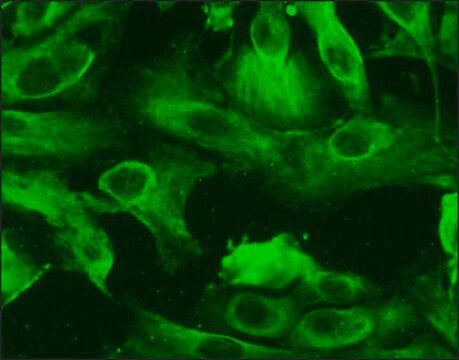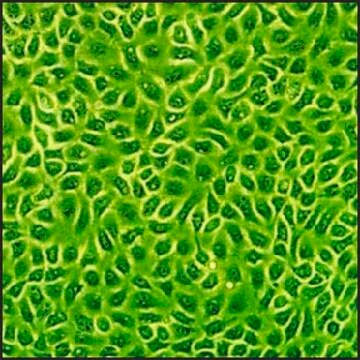MDBK Cell Line bovine
NOTE: Both the cell line and DNA from the cell line may be available for this product. Please choose -1VL or VIAL for cells, or -DNA-5UG for DNA, 90050801, bovine kidney, Epithelial-like
Synonym(s):
MDBK (NBL-1) Cells, Madin Darby Bovine Kidney Cells, NBL-1 Cells
About This Item
Recommended Products
biological source
bovine kidney
packaging
tube of 5 μg 90050801-DNA-5UG
pkg of vial of cells 90050801-1VL
growth mode
Adherent
karyotype
Modal no. 51; hypodiploid
morphology
Epithelial-like
products
Not specified
receptors
Not specified
technique(s)
cell culture | mammalian: suitable
shipped in
dry ice
storage temp.
−196°C
Cell Line Origin
Cell Line Description
Application
Culture Medium
Subculture Routine
Other Notes
Choose from one of the most recent versions:
Certificates of Analysis (COA)
It looks like we've run into a problem, but you can still download Certificates of Analysis from our Documents section.
If you need assistance, please contact Customer Support.
Already Own This Product?
Find documentation for the products that you have recently purchased in the Document Library.
Our team of scientists has experience in all areas of research including Life Science, Material Science, Chemical Synthesis, Chromatography, Analytical and many others.
Contact Technical Service


